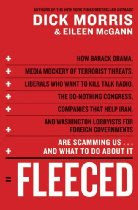The World Is Flat: A Brief History of the Twenty-first Century
 Thomas L. Friedman is not so much a futurist, which he is sometimes called, as a presentist. His aim, in his new book, The World Is Flat, as in his earlier, influential Lexus and the Olive Tree, is not to give you a speculative preview of the wonders that are sure to come in your lifetime, but rather to get you caught up on the wonders that are already here. The world isn't going to be flat, it is flat, which gives Friedman's breathless narrative much of its urgency, and which also saves it from the Epcot-style polyester sheen that futurists--the optimistic ones at least--are inevitably prey to.
Thomas L. Friedman is not so much a futurist, which he is sometimes called, as a presentist. His aim, in his new book, The World Is Flat, as in his earlier, influential Lexus and the Olive Tree, is not to give you a speculative preview of the wonders that are sure to come in your lifetime, but rather to get you caught up on the wonders that are already here. The world isn't going to be flat, it is flat, which gives Friedman's breathless narrative much of its urgency, and which also saves it from the Epcot-style polyester sheen that futurists--the optimistic ones at least--are inevitably prey to.What Friedman means by "flat" is "connected": the lowering of trade and political barriers and the exponential technical advances of the digital revolution have made it possible to do business, or almost anything else, instantaneously with billions of other people across the planet. This in itself should not be news to anyone. But the news that Friedman has to deliver is that just when we stopped paying attention to these developments--when the dot-com bust turned interest away from the business and technology pages and when 9/11 and the Iraq War turned all eyes toward the Middle East--is when they actually began to accelerate. Globalization 3.0, as he calls it, is driven not by major corporations or giant trade organizations like the World Bank, but by individuals: desktop freelancers and innovative startups all over the world (but especially in India and China) who can compete--and win--not just for low-wage manufacturing and information labor but, increasingly, for the highest-end research and design work as well. (He doesn't forget the "mutant supply chains" like Al-Qaeda that let the small act big in more destructive ways.) Friedman tells his eye-opening story with the catchy slogans and globe-hopping anecdotes that readers of his earlier books and his New York Times columns will know well, and also with a stern sort of optimism. He wants to tell you how exciting this new world is, but he also wants you to know you're going to be trampled if you don't keep up with it. His book is an excellent place to begin. --Tom Nissley
Order it here >>> The World Is Flat: A Brief History of the Twenty-first Century


